#bipoc voices
Text
Like this post if you are a person of color
#poc#bipoc#blackblr#pocblr#poc voices#bipoc voices#asianblr#japanblr#nativeblr#native identity#chinese#mexican#likes
16 notes
·
View notes
Text
Call 2 Action
It’s no secret that the white man dominates all of the West, if not the world. It’s also no secret that this isn’t anything new-- supremacy of white complexion, religion, and culture has existed in both practise & ideology long before 17th century colonialism.
What is new? Technological media. From social media like Instagram and Twitter to cinematic media like the MCU and Elden Ring, humans are constantly expanding in the realm of entertainment. This provides a platform not only to people you never want to see like James Corden, but also people that come from cultures that have been historically swept under the rug, so to speak. So; What do we want?
What do we want?
In a society with so much emphasis on entertainment, seeing oneself on the big screen is an insurmountable feeling. Not only does casual representation feel good, but it also changes the way we see other people around us. Disney-Pixar’s Turning Red gave many non-Chinese viewers a fun, cute, and informational look into the complexities of Chinese culture and the stress of generational trauma in immigrant families. Alice Oseman’s comic-turned-Netflix-original Heartstopper presents gay love in an innocent and pure way, which combats the expectations surrounding MLM (men loving men) relationships of being impure or inherently sexual.
What we want is representation. Studies show that representation in popular media changes the perception of not only outsiders or non-minorities, but people who belong to these groups as well. Seeing anyone other than a white man in a position of power inspires young ones and gives them a foundation for their hopes and dreams, and it is the children who are always the most important to the future of a society-- with better, diverse representation (such as GBH’s Molly of Denali), we are directly inspiring a new generation of doctors, teachers, artists, and others that offer fresh perspective and great determination to their field.
How do we get it done?
It’s pretty clear that there aren’t any SONY or Disney big-shots waltzing around Tumblr-dot-com for some good user-based criticism. The only celebrity that we know of who hasn’t been scared away from this hellsite is resident Beloved Neil Gaiman (author of American Gods, Good Omens, Coraline, and many others).
However, it’s also clear that these industry titans don’t exactly care about the voices of minorities as they’re too busy exploiting people for profit. So, what can we do about this?
There are a myriad of acceptable answers, the first and foremost being: Make the representation you want to see. It’s an oversimplification for sure, but it doesn’t mean that it’s ineffective. Independent, self-published books are a good source of perspective and understanding. So are comics, whether you post them digitally on Tapas or Webtoon, or prefer to keep them on your Tumblr art blog. It’s absolutely not the same thing as representation in media that is consumed in droves and twittered about constantly on social platforms, but that doesn’t mean that people won’t see it. Even if only a single person comes away with a fresh perspective and hope in their heart, it has been a successful endeavour.
If you aren’t a creator and can afford to support creators bringing representation into the media, donating financially to independent artists helps to provide the equipment needed in order to create. Patreons, Kickstarters, and Kofi are all great places to start. If, for any reason, you can’t support queer and POC artists financially, there are always alternative ways to show your appreciation. Boosting artists on social media and drawing attention to disparities in media representation help spread reach across larger audiences. Additionally, if there are shows/games/movies that you think do a good job of representing groups of people, Tweeting your appreciation goes a long way. Often, execs look at social media like Twitter to gauge engagement on their show. Shows with low engagement are more likely to be cancelled prematurely.
Steps for actionable change
Change isn’t something that can be secured through logic alone. Sudbrink, author and trainer with over 20 years of experience in management, simplifies change in people to five steps. Translated into applicable terms, these steps are:
Step 1: Awareness
Knowing that there is injustice.
Step 2: Desire
Wanting to fight injustice.
Step 3: Knowledge
Understanding the injustice; what it is, who or what is causing it, the context behind it, and how to help.
Step 4: Action
Taking action to fight injustice.
Step 5: Perseverance
Continuing to fight injustice.
Fighting oppression, tyranny, and injustice is much easier said than done. It is not something that can be done alone. Do your part in mending the disparity between cishets in media and queer + BIPOC voices in media in any way you possibly can, even if it’s simply supporting queer and BIPOC projects or spreading awareness. Remember: Awareness is the first step!
#activism#intersectional activism#representation#media/entertainment#social media#capitalism#communism#white supremism#queer#bipoc#call to action#school project#queer voices#bipoc voices#black voices#queer representation#bipoc representation
4 notes
·
View notes
Text
Hot take but I think what we saw in chapter 13 was necessary.
I don't think a lot of people realize how important it is for Araki to portray what he did, even if it extremely difficult to take in. Let me explain.
Araki has discussed about topics like racial and class disparity through both Steel Ball Run and Jojolion, but JOJOLands is different because the discussions are now very direct. We had Chapter 1 open up with police brutality and Chapter 13 open with intense bullying; both acts were committed by people of higher social standing/power and seemingly White (or white passing) and both are harming a dark-skinned queer individual. Not only that, remember that Hawai'i is an island stolen and colonized by the US and many indigenous individuals who were supposed to live and maintain kapu are being forced to endure housing problems, loss of culture, etc. due to gentrification and exploitation of its lands. 2020 was when we saw global protest towards the deaths of George Floyd and Breonna Taylor due to police brutality, which has spread as far as Japan in terms of demonstrations and rallies. Araki has made it clear that he tries to take real world experience into his writing, and this is no different. He is also no stranger to portraying law enforcement throughout his parts without glorifying or downplaying their behavior.
As a mutual of mine (who themselves identify as a black GNC individual based in US) has put it, those who identify or even appear as Black while identifying as trans-femme or women are subjected to some of the worse kinds of oppression possible in America. Queer women of Color are one of the most susceptible to sexual violence-- especially when they are young, and the darkness of their skin really plays into it. This is transmisogynoir; it is a hard pill to swallow and acknowledge, even if it feels excessive, and its a multilayer of oppression that connects a person's racial identity, gender, and sexuality as targets of discrimination. It's the fact that one is POC, a woman, AND queer that makes one a target--- not just one or the other. You can’t turn a blind eye to this because it happen constantly throughout America's history and American society even today, but you can't simply water it down or downplay it. In fact, many victims of transmisogynoir have no choice but to downplay their experiences because of their Black identities or because they appear too dark to be taken seriously; when they, especially if they are Black, try to hold people in power accountable, these individuals are suddenly labeled aggressive, indignant, etc. and they are further discriminated for attempting to speak up. Dragona downplaying the bullying isn't them just trying to avoid further conflict but a reflection of how many who were in similar situations like Dragona are forced to simply forgive and forget the trauma they have to endure. To downplay it ourselves is reinforcing the narrative that individuals like Dragona in real life should remain silent and endure their harassment rather than rightfully protect themselves and others from it.
Another thing to add is that the way Japan portrays and treats the LGBTQ community, particularly the trans community. In Japan, the process to legally change your gender is complicated and requires a lot of steps that include, but not limited to, being diagnosed with gender identity disorder, proving you have no kids/guardianships, and sterilization. This causes a lot of individuals to be forced to quickly transition as a means of getting their gender recognized, which takes away the time to let them explore at their own pace, and this is due to how the process can lead to hindering career and life opportunities that wouldn't be hindered had they already transitioned or stayed closeted. Many Japanese trans individuals unable to go through the process quickly either remain closeted or move away from Japan to transition at their own pace. So, as a result, the trans community and its struggles is not as noticed compared to outside of Japan. Another thing to add is that the trans community in Japanese media is often portrayed as comedic relief or a gag. Oftentimes, the trans character or character who diverts from gender conformity (i.e cross-dressing, acting more flamboyant) is the butt of the jokes. Some thing to note is that, when Dragona was first introduced, a lot of people thought that Araki put Dragona in simply for comedic purposes. I had people joke about how Dragona is just there because they believed Araki is trolling. Not only that, the racial issues that Japan has often results in jokes towards non-Japanese individuals in media, especially if they are of darker skin color.
So, Araki putting Dragona in these difficult situations is also meant to subvert expectations that his Japanese, and possibly Western, audience may be expecting. The expectation was to laugh and toss Dragona aside as a single-dimensional character, but Araki instead forced us to face the trauma through Dragona's experience head-on. We are made aware of Dragona's situation, how real and difficult the struggle is, and we end up emphasizing with it rather than laughing at it. Through this, we get a glimpse into real life experiences of trans POCs without it being downplayed and have it show how Dragona is a fleshed-out character with importance to the series. As some have put it, this chapter proved that Dragona isn't just a side character but arguably a complex individual on the same level of importance as Jodio. I don't think it would have been easy to have the same impact if another approach was taken.
While talking to others who identify as trans and/or GNC about their thoughts on the chapter, I was told by many of them that, while Dragona's experience hits close to home and was hard to digest, they appreciate seeing it being expressed and hope it will help other people understand their struggles. One noted how the introduction of Smooth Operators with the backstory as empowering, seeing the Stand as a symbol of surviving the trauma that comes with trans discrimination. I do find this a bit telling with how many people online who are against Araki's portrayal barely mention what trans/GNC people have said about it.
My main concern, as well as what I see people have rightfully critiqued, is the excessive trauma reinforcing the fetishization and violent voyeurism towards trans individuals; it also reinforces the problematic narrative that dysmorphia can only happen as a result of trauma and the trans experience can only be full of pain. There's also the issue that Dragona's experience also happened while they were under age and their harassment is similar to that of Lucy. It's a common trope in Western media to put marginalized people into these situations while upping the ante simply for clicks and pleasure, and even worse when the character portrayed is a minor. As I reiterate, it is a very uncomfortable chapter to read and I don't find it enjoyable at the slightest. Just because I understand why it is necessary doesn't mean I condone the approach done. I also understand Araki as a Japanese man can only relate and portray a queer American's experience to an extent. But, at the same time, the exposure was necessary because it gives us the awareness and a voice to trans people that is lacking within media even today. We need to be aware and acknowledge what our BIPOC trans community goes through as a means of being better humans--- and especially our younger community members. We need to make our society safer for them so they can thrive and have the respect they deserve. Oftentimes, that starts with how they are portrayed and how their experiences are portrayed. While it is still a journey and not every representation will be perfect, we can't simply toss it aside and bash those who try to show something realistic just because it is uncomfortable.
I only hope that Araki wrote Dragona and these scenes as a result of doing extensive research and reaching out to actual POC queer individuals, particularly transfemmes/women, to understand their experiences and have their blessings to use their words to shape Dragona. I feel like that would show that Araki was serious about discussing these issues through his characters rather than simply using Dragona's traumatic experience it for entertainment. I have higher expectations for Araki now, knowing that it may not be the last time he shows a character experience harassment and possibly have Dragona be harassed again, so I will keep my eyes open for this.
#the jojolands#this is my first time making a long ass serious post about this so i hope my message is well put#i understand that not everyone will agree and that my view is limited due to experiences so i do apologize if my message was incorrect#i wrote this after discussing this with trans/gnc individuals about their thoughts of chapter 13 and noticed how there's discourse on it#obviously please listen to BIPOC voices especially from those who also identify as queer. many told me they appreciate chapter 13's rawness#i'm also going to use this time to read up and learn more about the trans community and BIPOC community#so feel free to send me stuff to read up on as well#but yea my two cents
67 notes
·
View notes
Text
"Note:
There may be some resistance & discomfort when I say “we need to dismantle self-care”. The concept is prominent in leftist spaces & hailed as a radical form resistance. However, it is rarely understood in its original context with the necessary caveats which I’ll elaborate on below. It has also been sanitized, manipulated & co-opted for profit. As a result, it’s become bigger than what it was intended to be. People look to self-care now as a revolutionary “solution” to our collective problems (which it is not). Given that we live under capitalist, colonial systems that breed individualism, narcissism & self-centeredness, I think it’s important for us to rethink the utility of this concept today. In this piece, bringing in the knowledge of collectivist, land-based cultures, I’ll explain why it is urgent & critical for us to practice + embody COMMUNITY care which is a more complete framework that creates conditions of liberation needed for us to survive & thrive as we fight for the land & against the ecological destruction of our planet.
So even if you feel some discomfort arise, take a deep breath & hear me out."
- Ayesha Khan, Ph.D
Some quotes to consider:
The most prominent origins of the concept may be traced to Audre Lorde[...] She wrote about how cancer pushed her to realize that we all needed to slow down, pull back from oppressive systems, refuse to operate according to their values or accelerated “productivity” benchmarks when we can & that this divestment from a profit-driven system was critical for us to even begin to think about what collective “health” & healing means. It is an important first step in one’s political radicalization journey. It’s not everything & it wasn’t meant to be.
Self-care today is often reduced to: i) consumption of products, ii) neglect of community & erasure of the contributions of other beings who enable our care, and iii) one-sided, transactional extraction of care with a sense of entitlement to receive care without reciprocity or without focusing on daily practices of giving care in community. What does self-care look like in practice today?
Is there anything you do that doesn’t directly or indirectly involve the contribution of other beings? Even when we rest, there are conditions of some level of safety or security that have to be enabled for us to truly rest. So let’s take a moment to sit with how the beings at the other end of the “care products” we consume are being treated.
On the other hand, what does “self-care” that actively harms the collective look like? Relax at home alone with a sheet mask while ignoring a friend who reached out to connect because “you don’t owe anyone anything”, purchase care products & services from violent corporations killing our planet as a form of “self-love” while deprioritizing community building thinking it will heal you
Mainstream self-care has created NEW forms of oppression, extraction & exploitation.
The perspectives I offer in my community care work are not MY novel findings but a responsibility I bear as part of my ancestral/ community teachings & traditions. These perspectives are sorely missing in leftist spaces. I write this piece to honor our collectivist traditions & to affirm the many global communities who find the concept of “self-care” reductive, confusing or fundamentally indecipherable. Our cultures are rooted in caring for each other & the land that sustains us all— I’m slowly learning to carry & embody these values by any means necessary.
#self care#community care#a case for community care#solidarity#intersectionality#queer#activism#decolonization#leftist#feminist#BIPOC#whiteness#white supremacy#ref#allyship#allies#disability pride month#pride month#black voices#culture#dismantle self care#ayesha khan#anarchy#anarchist#anarchism#mutual aid#audre lord#communist#socialism#self love
175 notes
·
View notes
Text
I was the only Negro passenger on the plane, and I followed everybody else going into the Dobbs House to get lunch. When I got there one of the waiters ushered me back and I thought they were giving me a very nice comfortable seat with everybody else and I discovered they were leading me to a compartment in the back. And this compartment was around you, you were completely closed in, cut off from everybody else, so I immediately said that I couldn’t afford to eat there. I went on back and took a seat out in the main dining room with everybody else and I waited there, and nobody served me. I waited a long time, everybody else was being served. So finally I asked for the manager and he came out and started talking, and I told him the situation and he talked in very sympathetic terms. And I never will forget what he said to me.
He said, “Now Reverend, this is the law; this is the state law and the city ordinance and we have to do it. We can’t serve you out here but now everything is the same. Everything is equal back there; you will get the same food; you will be served out of the same dishes and everything else; you will get the same service as everybody out here.”
And I looked at him and started wondering if he really believed that. And I started talking with him. I said, “I don’t see how I can get the same service. Number one, I confront aesthetic inequality. I can’t see all these beautiful pictures that you have around the walls here. We don’t have them back there. But not only that, I just don’t like sitting back there and it does something to me. It makes me almost angry. I know that I shouldn’t get angry. I know that I shouldn’t become bitter, but when you put me back there something happens to my soul, so that I confront inequality in the sense that I have a greater potential for the accumulation of bitterness because you put me back there. And then not only that, I met a young man from Mobile who was my seat mate, a white fellow from Mobile, Alabama, and we were discussing some very interesting things. And when we got in the dining room, if we followed what you’re saying, we would have to be separated. And this means that I can’t communicate with this young man. I am completely cut off from communication. So I confront inequality on three levels: I confront aesthetic inequality; I confront inequality in the sense of a greater potential for the accumulation of bitterness; and I confront inequality in the sense that I can’t communicate with the person who was my seat mate.”
And I came to see what the Supreme Court meant when they came out saying that separate facilities are inherently unequal. There is no such thing as separate but equal.
The Autobiography of Martin Luther King Jr.
#MLK#Martin Luther King Jr#Clayborne Carson#The Autobiography of Martin Luther King Jr#1960s#civil rights#civil rights movement#black history#black history month#black lives matter#black history matters#black authors#history#blm#black voices#bipoc#african american#peaceful protests#nonviolent resistance#atypicalreads#noncooperation#passive resistance
529 notes
·
View notes
Text
Trans girls are so fucking pretty. Wide shoulders, radical intersectional leftism, and a girl-dick??? Sign me the fuck up.
#trans girls#original#t4t#girldick#trans women#trans pride#trans love#trans positivity#have YOU thanked Trans girls for existing today?? everyone say THANK YOU TRANS GIRLS#lol that's another good post right there I'll come back to that#and trans women with narrow shoulders? also hot. girlies who can lift me are mouth-watering. but! so are the disabled and small tgirls!#but jfc i love a low voice i love a little stubble i love other visibly trans people#i love tgirls acting and dressing in whatever way makes them feel good and that is FINAL#and non-binary trans femmes? ohoho those people glitter like gemstones from a mile away.#i tell it like it is! I'm just saying what everyone is already thinking!#extra love to fat and BIPOC trans femme people you belong here in this community and you are fucking BEAUTIFUL DAMMIT#uncompromising hot takes from Jack Goodfellow
116 notes
·
View notes
Text
Trans Rights Readathon Book Recommendations
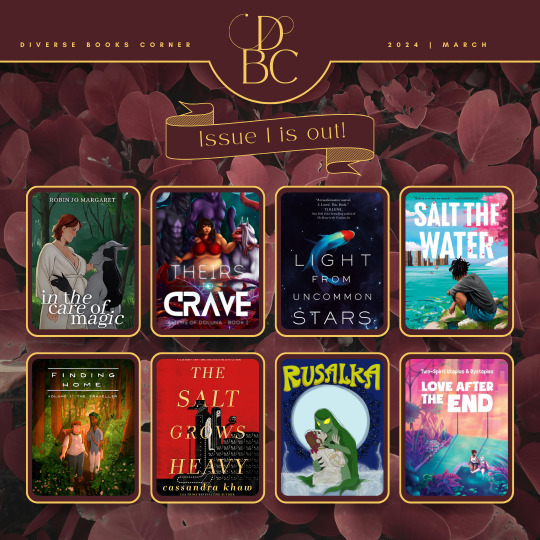
Hello everyone, we hope you’re all doing great! This is our first newsletter post, and since the Trans Rights Readathon is approaching, we thought it would be a great idea to start with book recommendations by trans and non-binary authors!
The readathon is an annual call to action for readers and book lovers in support of Trans Day of Visibility on March 31st. This year’s Trans Rights Readathon will take place from March 22nd to March 29th. We are excited to participate, and we hope you are too!
For more information, please check out the @/transrightsreadathon. In the meantime, here are a few books that you should definitely add to your reading list. Keep reading these books throughout the year as well and continue to amplify trans voices.
Also, if you haven't already, don't forget to subscribe to our Medium newsletter. The link is in our bio!
---
Have inquiries or thoughts to share? Are you an author or publisher interested in collaborating? Feel free to reach out via [email protected] or dm us here, and we’ll get back to you as soon as possible.
#trans rights readathon#bipoc#bookshelf#queer books#queer bipoc#poc books#lgbt books#trans authors#non binary authors#genderqueer authors#book recommendations#book blog#booklr#books and reading#representation matters#media representation#representation in media#trans voices
24 notes
·
View notes
Text
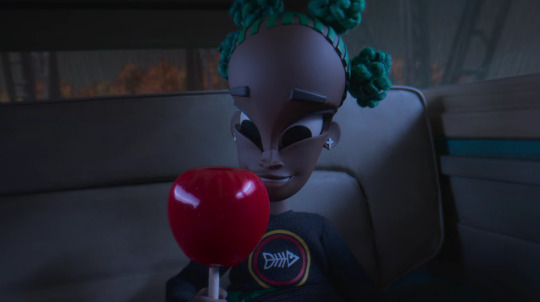
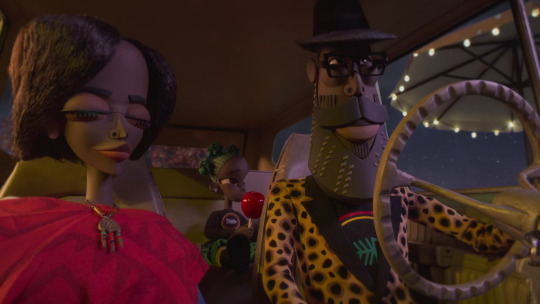
In Wendell & Wild, the father and daughter wear matching FISHBONE t-shirts. This makes me smile :)
#wendell and wild#fishbone#jordan peele#wendell & wild#afropunk#stop motion#representation matters#black history month#bipoc representation#amplify black voices#amplifymelanatedvoices#ska punk
173 notes
·
View notes
Text
duckprintspress blocked me
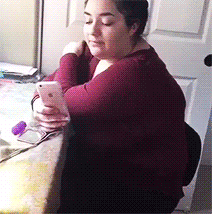
16 notes
·
View notes
Photo

Yūji Mitsuya
Gender: Male
Sexuality: Gay
DOB: 18 October 1954
Ethnicity: Japanese
Occupation: Actor, voice actor, director
#Yūji Mitsuya#Yuji Mitsuya#qpoc#bipoc#lgbt#male#gay#1954#asian#japanese#poc#actor#voice actor#director
53 notes
·
View notes
Link
“People told Lucy Yu it was a crazy time to open a bookstore in Chinatown. It was early 2021, and the pandemic had devastated the neighborhood, forcing dozens of stores and restaurants to close. The rise of anti-Asian hate crimes had shaken residents and local business owners.
But Ms. Yu believed that a bookstore was just what the neighborhood needed.
She raised around $20,000 on GoFundMe, enough to rent a narrow storefront — a former funeral supply store — on Mulberry Street in downtown Manhattan. A neighborhood grant gave her $2,000 for shelves and books. And in December [2021], she opened Yu and Me Books, which specializes in titles by and about immigrants and people of color.
The store was profitable within four months, Ms. Yu said.
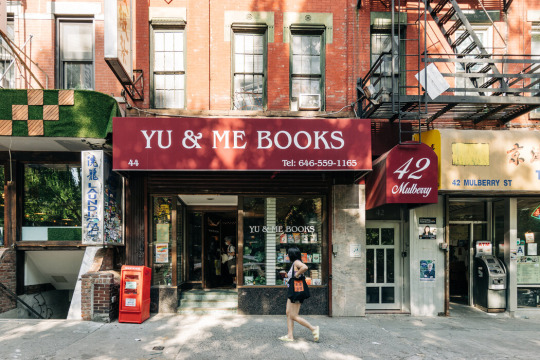
Yu and Me Books is one of more than 300 new independent bookstores that have sprouted across the United States in the past couple of years, in a surprising and welcome revival after an early pandemic slump. And as the number of stores has grown, the book selling business — traditionally overwhelmingly white — has also become much more diverse.
“People were hungry for a place focused on Asian American and immigrant stories,” said Ms. Yu, 27, who worked as a chemical engineer and supply chain manager before opening the store. “That’s something I was always searching for when I went to bookstores, and I wanted people to come here and not have to search.”
Two years ago, the future of independent book selling looked bleak. As the coronavirus forced retailers to shut down, hundreds of small booksellers around the United States seemed doomed. Bookstore sales fell nearly 30 percent in 2020, U.S. Census Bureau data showed. The publishing industry was braced for a blow to its retail ecosystem, one that could permanently reshape the way readers discover and buy books.
Instead, something unexpected happened: Small booksellers not only survived the pandemic, but many are thriving.
“It’s kind of shocking when you think about what dire straits the stores were in in 2020,” said Allison Hill, the chief executive of the American Booksellers Association, a trade organization for independent bookstores. “We saw a rally like we’ve never seen before.”
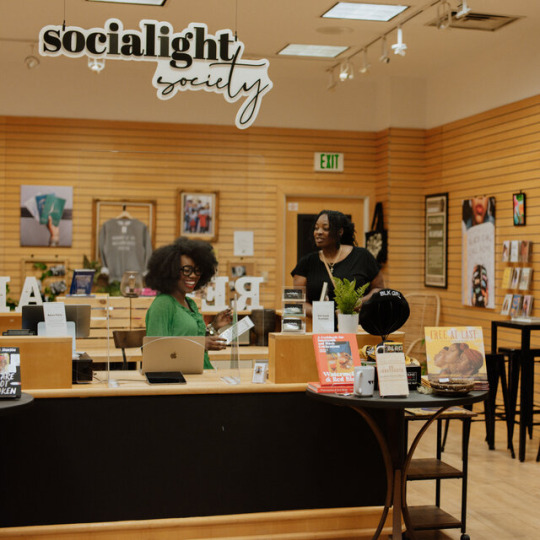
The association now [in July 2022] has 2,023 member stores in 2,561 locations, up from 1,689 in early July of 2020. Some of the growth reflects the renewal of memberships by existing stores that put off doing it last year amid the uncertainly caused by the pandemic. But there has also been a sharp and sustained rise in new bookshops, and more than 200 additional stores are preparing to open in the next year or two, Ms. Hill said.
Many stores have also seen a bump in profits. In a survey of booksellers [in 2022], the association found that some 80 percent of respondents said they saw higher sales in 2021 than in 2020, and nearly 70 percent said their sales last year were higher than 2019, Ms. Hill said.”
-via The New York Times, 7/10/22. Excerpt continues below.
“At Blue Willow Bookshop in Houston, revenue was up by 20 percent in 2021, and the store made more money last year than it did in 2019, according to the owner, Valerie Koehler. Mitchell Kaplan, the founder of Books & Books, an independent chain in South Florida, said sales were up more than 60 percent in 2021 compared to 2020.
Many of the new stores that opened during the pandemic are run by nonwhite booksellers, among them The Salt Eaters Bookshop in Inglewood, Calif., which specializes in books by and about Black women, girls and nonbinary people; the Libros Bookmobile, a Latina-owned mobile bookstore in a converted school bus in Taylor, Texas, which stocks fiction in Spanish and English, and Reader’s Block, a Black-owned bookshop in Stratford, Conn.
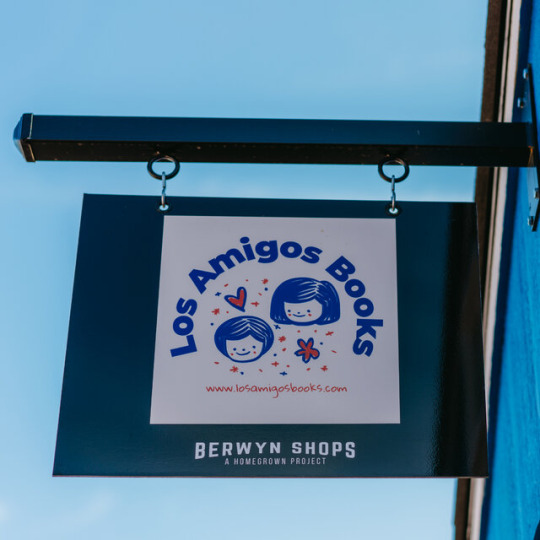
...One unexpected outcome of the pandemic was the way many communities rallied around their local bookstores in a time of crisis. When in-person shopping plummeted during the shutdown, bookstores rapidly scaled up their online sales operations, and found other ways to keep their customers, including curbside pickup, home delivery, outdoor pop-up stores and bookmobiles. Readers, it turned out, were eager for print books during the pandemic, and the spike in sales continued into 2021, when publishers sold nearly 827 million print books, an increase of roughly 10 percent over 2020, according to NPD BookScan.
The new crop of bookstores may also be a byproduct of broader pandemic-driven shifts in the economy as people re-evaluated their lives and changed professions, and retail spaces became more affordable. Government assistance to small businesses helped many bookstores weather the shutdown, while stimulus checks enabled some people to leave their jobs and start new businesses.
Julie Ross quit her job in human resources at Google this year to open Pocket Books Shop in Lancaster, Pa., with two friends who left academia. They opened their “queer, feminist indie bookstore” — there is a table near the front with books about abortion — in a conservative part of the state, close to where one of her co-owners grew up.
The pandemic “burst the bubble of believing we had any control over what was coming,” Ms. Ross said. “We had this moment of, ‘What are we waiting for?’”
...[As for Yu and Me Books, [author Ava Chin], whose family has lived in Chinatown for generations, said that the store has become a gathering spot for artistic and literary-minded locals, and something of an Asian American literary hub. Its packed calendar includes a bilingual poetry reading with the poet Yam Gong, a book launch for the writer and essayist Larissa Pham, and a signing with the novelist Marie Myung-Ok Lee.
At a moment when anti-Asian hate crimes have surged, the store has also come to feel like a safe haven, Ms. Chin said. In March, the shop held an event to raise awareness and distributed more than 1,000 safety alarms and pepper spray canisters.
“It’s not just a bookstore, it really is a de facto community space,” Ms. Chin said. “I don’t think we realized we needed a bookstore until we had one.””
-via The New York Times, 7/10/22
#new york#united states#nyc#covid#pandemic#bookstore#indie bookstore#books#reading#small business#bipocowned#bipoc authors#we need diverse books#own voices#amazon#fuck jeff bezos#good news#hope
59 notes
·
View notes
Text
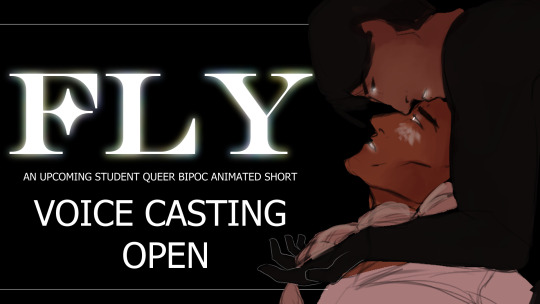
guys have you considered being a voice of a smexy queer fallen angel with a smexy shapeshifting boyfriend?
You should join my very cool queer bipoc animated short! I am absolutely open to hearing a wider range/hearing different interpretations for these characters!
#artists on tumblr#animation#voice acting#voice actor#guys the animatic is actually so gay so imagine if it had voices in it#digital art#queer bipoc
3 notes
·
View notes
Text
“It must be remembered that genuine peace is not the absence of tension, but the presence of justice.” — Martin Luther King Jr.
#MLK#Martin Luther King Jr#Clayborne Carson#The Autobiography of Martin Luther King Jr#1960s#civil rights#civil rights movement#black history#black history month#black lives matter#black history matters#black authors#history#blm#black voices#bipoc#african american#peaceful protests#nonviolent resistance#atypicalreads#noncooperation#passive resistance
187 notes
·
View notes
Text
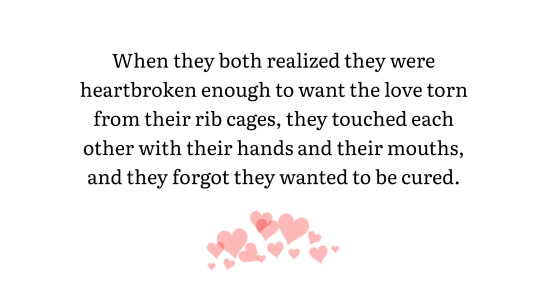
–Anna-Marie McLemore, When the Moon Was Ours
#book quote of the day#anna marie mclemore#when the moon was ours#Valentine's day reading recs#magical realism#ya books#bipoc representation#lgbtqia+ literature#transgender protagonist#pakistani protagonist#latinx protagonist#mexican-american author#James Tiptree Jr Award winner#Stonewall Honor Award winner#young adult fantasy#romance books#own voices#gorgeously written#book recommendations
24 notes
·
View notes
Text
Diverse Books Corner, where reading isn't just a hobby—it's a way to express our values
Hello and welcome to Diverse Books Corner! We're thrilled to have you join our community of book lovers. Our monthly newsletter is a labor of love, created by enthusiasts like yourself. At Diverse Books Corner, we're passionate about spotlighting the finest reads that embrace a multitude of perspectives.
Our mission is clear: to share stories that reflect diverse backgrounds, fostering empathy, unity, and a commitment to what's just. We aim to enrich your bookshelf with stories from every nook and cranny of humanity.
Whether you identify as a reader, writer, or publisher, we encourage collaboration and a shared passion for books. Feel free to drop us a message anytime – let's talk books, exchange ideas, or explore exciting collaborations. Together, let's unite in our shared love for diverse voices and exceptional storytelling at Diverse Books Corner. Join us in spreading love for literature that resonates with every reader!
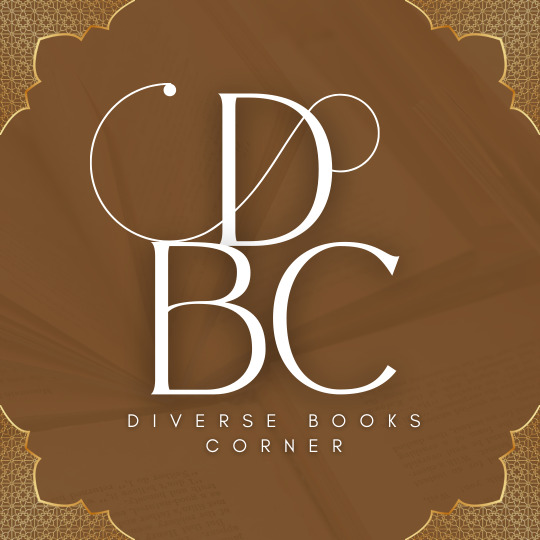


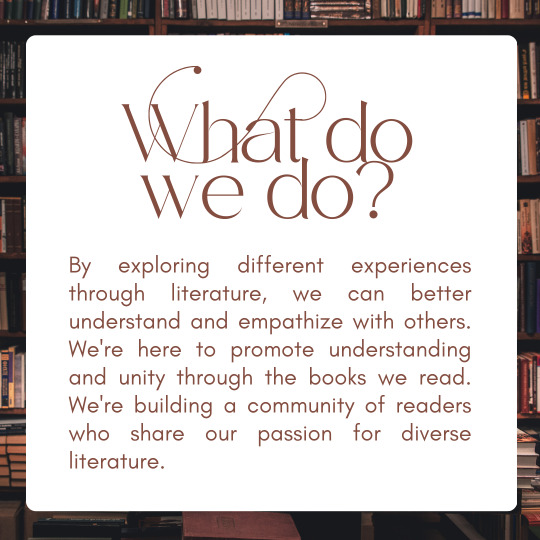
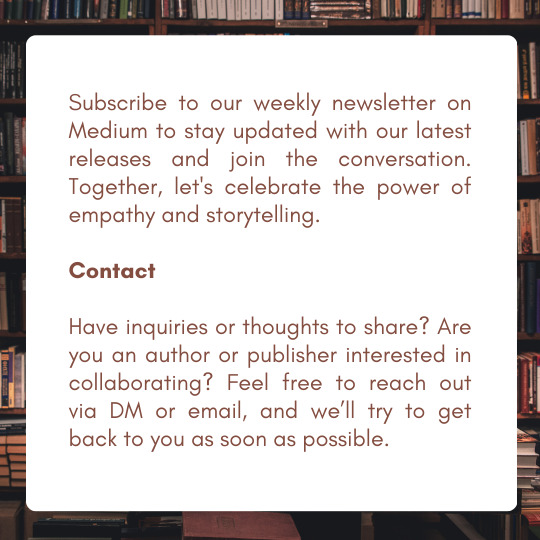
#diverse books corner#diverse books#diverse bookstagram#diverse bookclub#diversity#newsletter#bookstagram#bipoc books#bipoc authors#marginalized voices#inclusivity#authors of color#queer authors#bookshelf#bipoc#queer books#poc books#queer bipoc#lgbt books#bookstore
3 notes
·
View notes
Text

I watched this last night because I noticed Jordan Peele was involved. I was just expecting a fun stop motion animation movie.
I was not expecting:
Racially and ethnically diverse cast ✓
Positive trans portrayal ✓
Anti for-profit prison message ✓
Kick ass afro-punk soundtrack ✓
It makes my heart happy to see so much positive portrayals of diversity set to rock music by BIPOC musicians. 🙂

#wendell & wild#jordan peele#keegan michael key#afropunk#protect trans kids#diversity#wendell and wild#for profit prisons#representation matters#bipoc representation#lgbtq representation#punk rock#black history month#amplifymelanatedvoices#amplify black voices#bipoc rock#bipoc#key and peele#key & peele#trans acceptance
157 notes
·
View notes